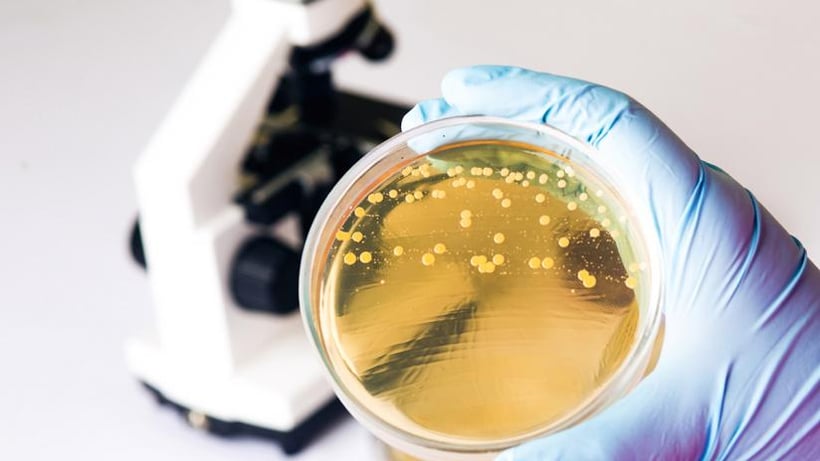
Haemolytic uraemic syndrome (HUS) is a serious condition affecting the blood and blood vessels, associated with E. coli infection. It damages the small blood vessels of the kidneys, resulting in kidney failure. Symptoms of HUS include dehydration, lethargy, yellow or pale skin, puffiness and seizures.
A study published in Emerging Infectious Diseases found that, while HUS occurs most frequently in children, it may cause more significant problems — even death — in adults.
The study, conducted from 2009 to 2017, looked at HUS caused by Shiga toxin-producing E. coli (STEC) in 96 adults living in France. In these adults:
- 69 had underlying health conditions
- 61 needed dialysis
- 50 experienced neurologic complications
- 34 needed medical ventilation
- 19 died during hospitalisation
The risk of death is higher after age 40, likely because antibodies that fight STEC decrease after that age.
Overall, according to the study, 20 percent of adults who had HUS associated with Shiga toxin-producing E. coli died while hospitalised, while only one percent of children suffering from this illness died in France during the same time range.
What is E. coli?
E. coli (Escherichia coli) is a group of bacteria that nearly all healthy people and animals have living in their intestines. Most types of the bacteria are harmless, even helping to keep intestinal tracts healthy. Common types may cause mild symptoms such as brief diarrhoea, stomach pain or urinary tract infection.
Some types of E. coli make a toxin called Shiga that causes illness and damages the intestinal lining. These strains are referred to as STEC, for “Shiga toxin-producing E. coli.” These STEC strains, such as E. Coli O157:H7, pose severe health risks such as pneumonia, meningitis (in newborn babies) or inflammation of the gallbladder.
Who is most at risk?
Vulnerable groups consist of children under the age of five, pregnant women and unborn children, the elderly, as well as those with weakened immune systems. These people are more at risk of falling ill from any infectious disease — and they are more susceptible than the rest of the population to contracting a serious illness associated with E. coli.
What are the sources of E. coli?
Exposure to E. coli comes from drinking contaminated water or eating contaminated food, notably raw or undercooked meat such as minced beef in hamburgers, or raw vegetables. Other sources are untreated milk or cheese products, or unpasteurised fruit juices. You can also contract E. coli by swimming in a body of water containing the bacteria and inadvertently swallowing some water, or through another person who has the illness, such as when a child with E. coli who hasn’t washed their hands touches you. You could also get E. coli from animals carrying the bacteria, such as after visiting a petting zoo and not properly washing your hands.
What are the symptoms to watch for?
Symptoms begin to show two to five days after taking in the bacteria. The most common symptoms of E. coli bacteria infection are:
- watery or bloody diarrhoea
- stomach pain and cramping
- nausea and vomiting
- fatigue
The symptoms usually go away on their own within a week, but children or those with underlying health conditions can suffer a longer duration of effects, and more serious symptoms including kidney failure. Contact a doctor if you have severe diarrhoea that has blood in it, a high fever along with diarrhoea, or any symptoms of HUS.
Prevention and treatment
To some extent, preventing this illness involves avoiding foods that are most often contaminated, such as raw or undercooked beef. Meat should be cooked to 75°C or higher. Only consume pasteurised dairy products and wash all produce before you consume it. In general, the best way to prevent falling ill is with thorough hand-washing before handling food, after using the toilet, after changing a nappy, after contact with animals and after handling raw meats.
The only way to know for sure that you’ve contracted E. coli bacteria is to visit your doctor, where they will take a stool sample to send to the lab for analysis. A blood sample can also test for the presence of HUS. In most cases, rest and hydration are recommended.
As the study uncovered, preventing E. coli infection is crucial, since the impact of contracting some strains of the bacteria can be severe for adults. One of the best ways to prevent illness is through proper training. The Australian Institute of Food Safety (AIFS) offers comprehensive, nationally recognised training in safe food handling, preparation and cooking techniques to help reduce food-borne illnesses in Australia. Learn more about our food safety courses.





